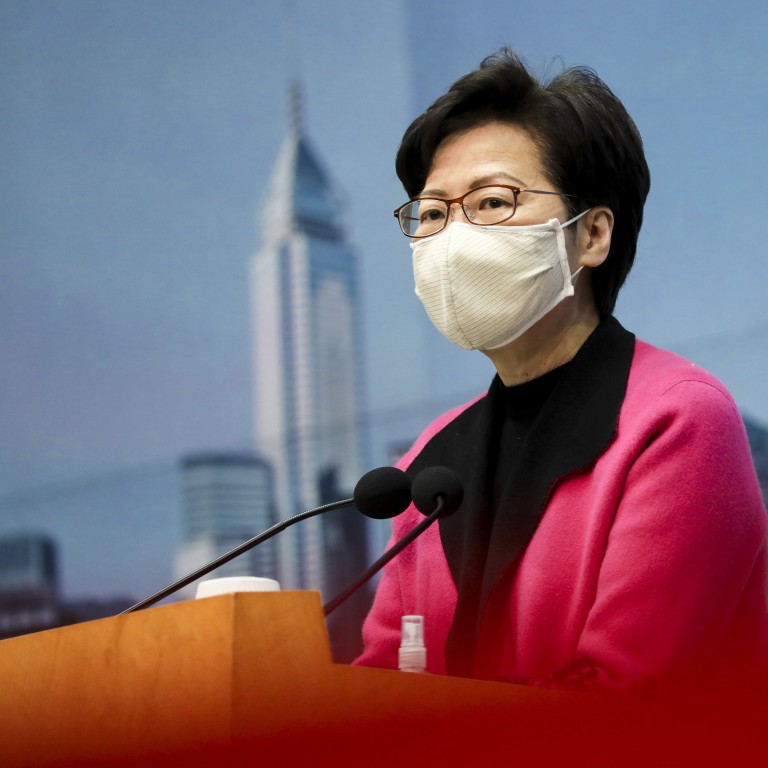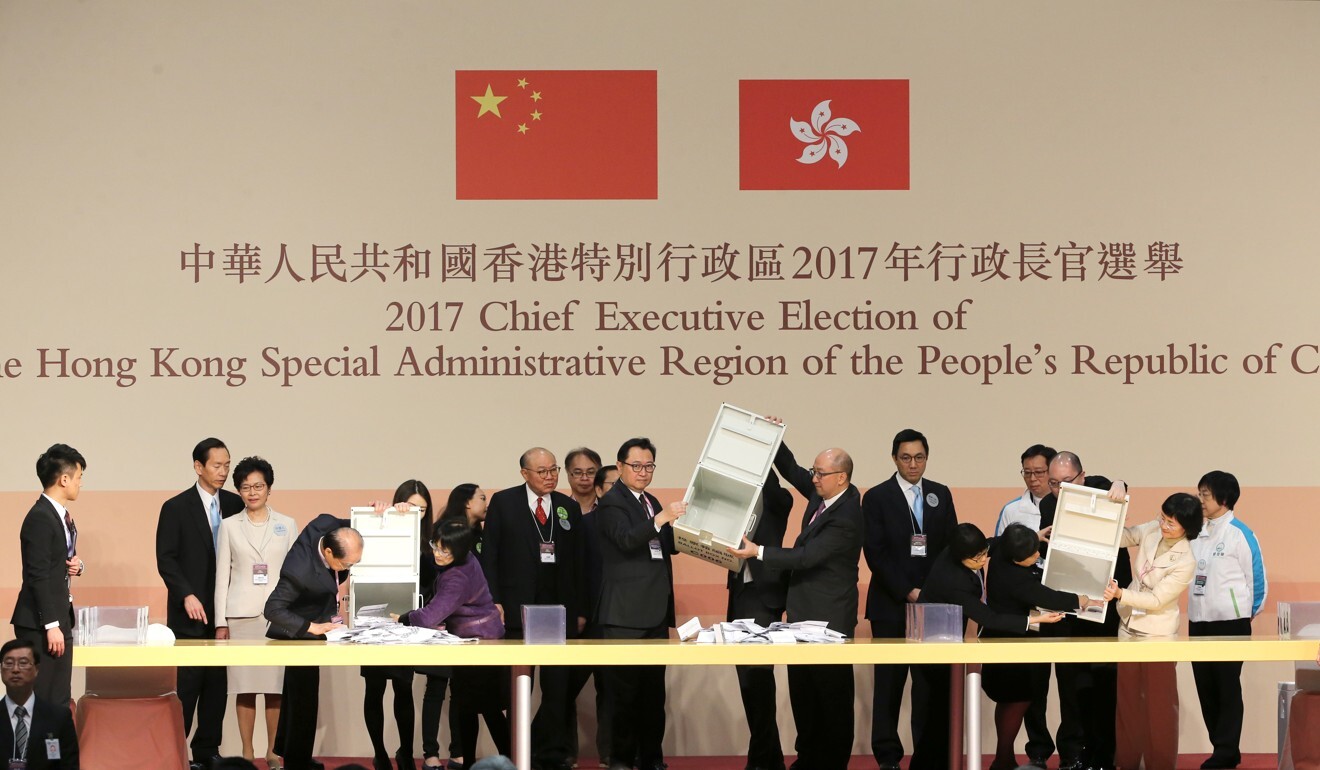
Carrie Lam defends value of election process for Hong Kong’s chief executive post as Beijing mulls drastic overhaul of system
- CY Leung, the city leader’s predecessor, on Monday noted the position could also be filled ‘through consultations’
- The Post previously reported China’s top legislative body could abolish some of the 1,200 Election Committee seats likely to go to opposition district councillors
Hong Kong’s leader has distanced herself from a suggestion by her predecessor that the city’s next chief executive could be selected without an electoral process.
But Lam also warned that while Beijing was sincere about democratic reforms in Hong Kong, it had no choice but to take action when the city’s situation became worrying.
I think whether it is from the perspective of historical development, or the social effects of an election, it’s better for the chief executive to be elected

In an interview with local news portal HK01, former Hong Kong leader Leung Chun-ying on Monday noted that Article 45 of the Basic Law, the city’s mini-constitution, stipulated the city’s chief executive “shall be selected by election or through consultations”.
Even if the city’s next leader was picked without elections, it would still be lawful and the British government could not complain, he added.
Asked if she agreed with Leung’s suggestion, Lam noted that chief executives had been selected by elections since Hong Kong was returned from British rule in 1997.
“I think whether it is from the perspective of historical development, or the social effects of an election, it’s better for the chief executive to be elected,” she said.

The Beijing-decreed political reform package was eventually voted down, after officials failed to win over any opposition lawmakers and fell short of the necessary two-thirds majority in the legislature.
Referring to that failed political reform, Lam insisted Beijing had been sincere about delivering on its promise to allow universal suffrage for the city’s leadership.
“But some people stopped the democratic progress. A few years have passed, and worrying [circumstances] have emerged in Hong Kong’s actual situation,” she said.
Writing on his Facebook page on Tuesday afternoon, Leung said it was the opposition camp’s close ties with the American government that made him question the necessity of the chief executive election.
“What’s the actual situation in Hong Kong in recent years? The major politicians from the opposition camp have refused to recognise their roots … or have even asked the American government to sanction Hong Kong,” he argued. “If this actual situation causes a puppet of the American government to be elected as chief executive, do we still want an election?”

Lam assured residents that as long as they held a Hong Kong passport and had the right of abode, they enjoyed the rights guaranteed by the Basic Law.
“Most people in Hong Kong, even if they are holding a BN(O) passport, are Chinese citizens, and at the same time possess an HKSAR passport,” she said.
Last week, the Post reported Beijing was mulling whether to ban those with BN(O) status from public office in Hong Kong, or even deny them the right to vote, in retaliation against London’s decision to offer them the right of abode.
Lam also said a new, temporary coronavirus hospital near Hong Kong airport would be completed on Wednesday, offering 820 beds for patients.
She further reported there had been 1,504 commercial property transactions following November’s abolition of double stamp duty, up until the end of December. The government could have received about HK$230 million in revenue if the levy had not been scrapped.

